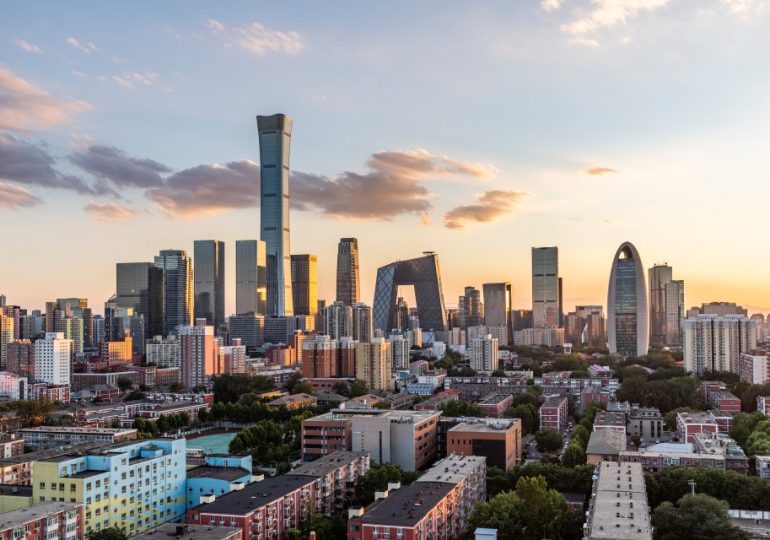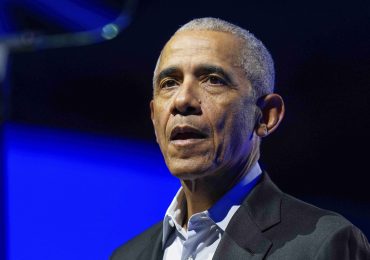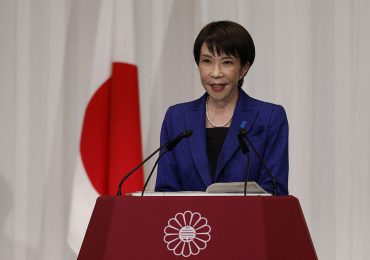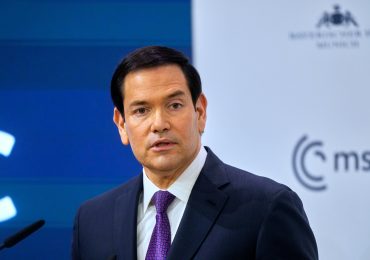FROM the founder of TikTok to an online gaming kingpin, Forbes has named China’s wealthiest billionaires of 2023.
The top five make up an impressive portfolio of individuals you may have never heard of – who are richer than rapper Jay-Z and Russian oligarch Roman Abramovich.
GettyForbes has released its 2023 China Rich List[/caption]
The combined wealth of China’s 100 richest in 2023 dropped slightly to $895billion from $907.1billion last year, Forbes said.
Bottled water billionaire Zhong Shanshan remains the richest in China for the third year in a row with a net worth of $62.4billion – and Zhang Yiming kept his spot in second.
But China’s battery king Robin Zeng slipped out of the top five, along with Alibaba founder Jack Ma.
Two newcomers joined the top ranks – online gaming tycoon William Ding and e-commerce giant Colin Huang.
Here’s China’s top five wealthiest billionaires.
Zhong Shanshan – From humble journalist to ‘lone wolf’ billionaire
AlamyZhong Shanshan,68, is a chairman of a beverage company and pharmacy enterprise[/caption]
Zhong Shanshan, 68, is the second richest man in Asia and the richest billionaire of China.
He is the founder and chairman at bottled water company Nongfu Springand the majority owner of Wantai Biological – which makes tests for infectious diseases including Covid-19.
With an estimated fortune of $62.4billion, Zhong’s lifestyle is more low-key than expected of a billionaire.
The bottled water and tea magnate comes from humble beginnings.
He dropped out of primary school during China’s Cultural Revolution, and picked up a job as a construction worker, and later as a newspaper reporter.
He was also a beverage sales agent before starting his own beverage venture.
In 1988, Zhong moved to Hainan, an island off the coast of southern China, where he sold mushrooms, prawns, and turtles.
In 1996, he founded his bottled water company in Hangzhou – which grew to be the largest bottled water maker in China.
It’s also one of the largest beverage companies in the world.
Nongfu Spring‘s initial public offering in September 2020 massively increased Zhong’s wealth – expanding his fortune from $18.9billion dollars to more than $50billion.
Zhong is known as a “lone wolf” in China, leading a private life, rarely appears on media and stays out of politics.
He has one son – who is a non-executive director at Nongfu Spring.
Zhang Yiming – The man who gave us TikTok
GettyThe founder of TikTok accumulated a net worth over 35 billion pounds[/caption]
Zhang Yiming, 40, is the youngest billionaire in the list and founder of the hugely popular app, TikTok.
With a net worth of over $43.4billion, Yiming built his fortune after co-founding ByteDance – the Chinese tech giant behind TikTok.
Yiming is a son of civil servants and studied software engineering in Nankai University in 2005.
In 2012, the tech mogul started ByteDance in a four-bedroom apartment in Beijing and launched news-aggregation app Toutiao months later.
In just a year’s time, Yiming was listed in Forbes China’s 30 under 30.
And in just two years, daily active users of Toutiao climbed to over 13 million.
In September 2016, the tech tycoon created Douyin, a short-video app, which gained international success under a different name – TikTok.
Yiming’s creation has become a serious threat to giant players on both domestic and international arena.
In 2021, TikTok, which has over a billion users, surpassed Google as the world’s most popular online domain based on web traffic, according to web performance and security firm Cloudflare.
And Douyin, now one of China’s biggest advertising platforms, could snatch a crown from the giant online shopping empire – Alibaba.
The father of TikTok stepped down from his position as a CEO in 2021 amid China’s tech crackdown when other high-profile tech founders were also giving up their roles.
The government has cracked down on everything from anti-competitive policies to data and algorithms and dictating where companies could list their shares publicly.
Yiming has kept a low-profile since, reportedly living in Singapore.
Colin Huang – Budget shopping magnate
GettyColin Huang made it into China’s top three richest for the first time[/caption]
Colin Huang has broken into the ranks of China’s top three richest for the first time – up for number nine last year.
The businessman is the founder and former chief executive of the e-commerce company PDD – now the largest agriculture platform in China.
And his fortune nearly doubled this year to $38.6billion.
Born in Hangzhou to factory worker parents, Huang graduated with a degree in computer science from the University of Wisconsin.
He interned at Microsoft in Beijing and Seattle before joining Google in the US as an engineer in 2004.
In 2006, he came back to China to expand Google’s services in his home country.
The 43-year-old created an online games firm and an e-commerce site in 2007 – selling it for $2.2million in 2010.
And in 2015, he set up Pinduoduo (PDD) in 2015 as a rival to Alibaba – founded by Jack Ma.
His company became publicly traded after an initial public offering in the US in July 2018 – raising $1.6billion.
After the public offering, Huang’s 47 per cent stake in Pinduoduo was valued at $14billion, making him the thirteenth richest person in China.
His fortune has exploded in the last year as e-commerce continues to thrive in China.
Ma Huateng – ‘A’ game player in the industry
GettyWeChat founder is also a stakeholder for Epic Games, Spotify and Tesla[/caption]
Ma Huateng, 52, chairs Chinese internet giant Tencent Holdings – and is now worth $33.9billion.
His company is famous for its popular social messaging app WeChat, which has over 1.3 billion users.
Tencent is also one of the biggest video game publishers in the world and owns a stake in US video game company, Epic Games.
Huateng was born to a family of a port manager, and graduated from Shenzhen University where he studied computer science.
The tech tycoon earned only £143 a month at his first job, developing software for pagers at China Motion Telecom Development before launching his own product.
In 1998, together with his university classmate, Zhang Zhidong, he co-founded Tencent, which means galloping message in Mandarin.
At first, his product was an instant messaging service, but it has now turned into China’s largest internet community, offering messaging, news portals and e-commerce.
Today Huateng’s company owns stakes in electric car maker Tesla and music-streaming service Spotify.
William Ding – Online gaming tycoon
GettyWilliam Ding is the founder and CEO of NetEase[/caption]
In 2023, William Ding’s net worth shot up by two-thirds to $32billion and he rose three spots to number five in the list.
Ding is the chief executive of gaming giant NetEase, founded by the billionaire in 1997.
His company has released two new blockbuster titles in the last year – boosting Ding’s wealth by 71 per cent.
NetEast started out as an email-service provider and Ding soon grew it into a games giant.
Beijing lifted a freeze this year on handing out online gaming licences – brought to curb addition among youngsters – which gave Ding’s gaming business a huge boost.
Eggy Party, licensed just before the clampdown, has become one of the company’s most popular titles with 100 million active monthly users as of August, Forbes reports.
Shi Jialong, Hong Kong-based head of China Internet Research at Nomura, said onsumers have been hungry for new titles since the licensing freeze.
NetEase reported a 5 per cent rise in revenue to $6.8billion in the first half of 2023.
Games revenue accounted for nearly 80 per cent of this.
Ding became the richest person in China in 2003 – becoming the country’s first internet and gaming billionaire.
Leave a comment
















